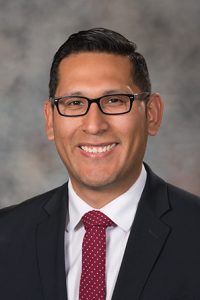FAFSA completion requirement considered
Nebraska students would have to complete and submit a federal college financial aid application before they graduate from high school under a proposal heard Feb. 3 by the Education Committee.
Introduced by Omaha Sen. Tony Vargas, LB1089 would, with some exceptions, require each student enrolled in a public high school to complete and submit a Free Application for Federal Student Aid before graduating, beginning with the 2021-22 school year.
Vargas said the vast majority of students qualify for at least some financial aid, including federal Pell Grants and loans, state scholarships and college-sponsored aid. However, he said, many do not complete the FAFSA because they do not realize they would qualify.
Instead, many students take out private education loans that can have higher interest rates and lack certain consumer protections that federal loans provide, Vargas said.
Nationwide, he said, more than 600,000 high school graduates who were eligible for a Pell Grant in 2018 did not complete a FAFSA, missing out on $2.6 billion in financial aid, or about $4,000 per student. Vargas said 38.5 percent of Nebraska students did not submit a FAFSA last year.
“By making FAFSA completion a requirement,” he said, “schools would be able to provide more assistance and resources to students who may not otherwise have the assistance to complete the FAFSA application on their own.”
LB1089 would allow the state commissioner of education to waive the requirement if a student’s parent or legal guardian refuses to complete the application for the student or if the administrator of the district in which the student is enrolled determines that the student is not able to complete it due to extenuating circumstances.
Mike Baumgartner, executive director of the Coordinating Commission for Postsecondary Education, testified in support of the bill. According to a U.S. Department of Education study, he said, students from low-income families have lower college-going rates than students from families in higher income brackets.
However, Baumgartner said, according to the National College Access Network, FAFSA completion is associated with a 127 percent increase in immediate college enrollment for students in the lowest socioeconomic quintile. Nebraska has several initiatives meant to encourage families to complete the FAFSA, he said, but needs to do more.
“At a minimum, this would familiarize parents with the FAFSA and with financial aid and help them understand what they need to do to help their children achieve their educational goals,” Baumgartner said.
Lazaro Spindola, executive director of the Latino American Commission, also testified in support of LB1089. He said it would help more Latino first-generation college students, many of whom have disadvantaged socioeconomic backgrounds, learn what resources are available for higher education.
No one testified in opposition to the bill and the committee took no immediate action on it.

